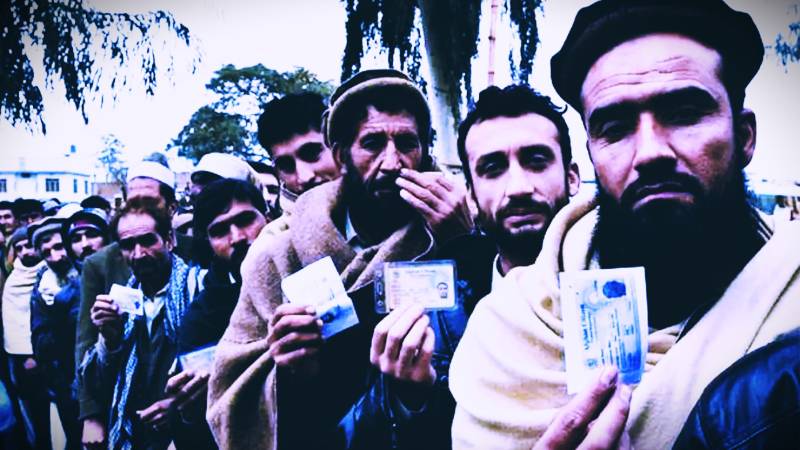
The federal government's recent decision to evict nearly 1.1 million illegal foreigners within 30 days has come under criticism from rights groups, who say that such a move demonstrates the government's lack of compassion and a myopic and narrow view of national security.
In a message posted on the social media site X (formerly Twitter), the Human Rights Commission of Pakistan (HRCP)said that the move will impact many vulnerable people.
The government's decision to evict over one million 'illegal' foreign residents within 30 days - allegedly because they have links to terrorist and criminal groups - reflects not only an absence of compassion but also a myopic and narrow view of national security. The large…
— Human Rights Commission of Pakistan (@HRCP87) October 4, 2023
"The government's decision to evict over one million 'illegal' foreign residents within 30 days - allegedly because they have links to terrorist and criminal groups - reflects not only an absence of compassion but also a myopic and narrow view of national security," read the statement.
It added that the vast majority of such people were vulnerable Afghan refugees and other stateless individuals for whom Pakistan has been the home for several generations.
"It is unacceptable to hold them to account for the wrongs of a select few," HRCP said, adding that these individuals have the moral right to seek refuge in Pakistan and to be treated with dignity and empathy.
"This decision also contravenes international human rights law and must be reversed immediately," HRCP urged, adding that it intends to lobby strongly with the government to reverse the decision and for Pakistan to sign the 1951 Refugee Convention.
Earlier in the week, an apex committee meeting of the National Action Plan, chaired by Prime Minister Anwaarul Haq Kakar and attended by Chief of Army Staff General Syed Asim Munir, decided to start a phased process of evicting illegal migrants and Afghan refugees.
In the first phase, some 1.1 million people living illegally in Pakistan were given 30 days to return to their home countries or face mass arrests and deportation.
Subsequent phases will look at the repatriation of Afghan refugees who hold special refugee cards.
The government also decided to end a decades-old practice which allowed tribes in the border areas to cross over without the need for formal travel documents to visit their lands and families.

